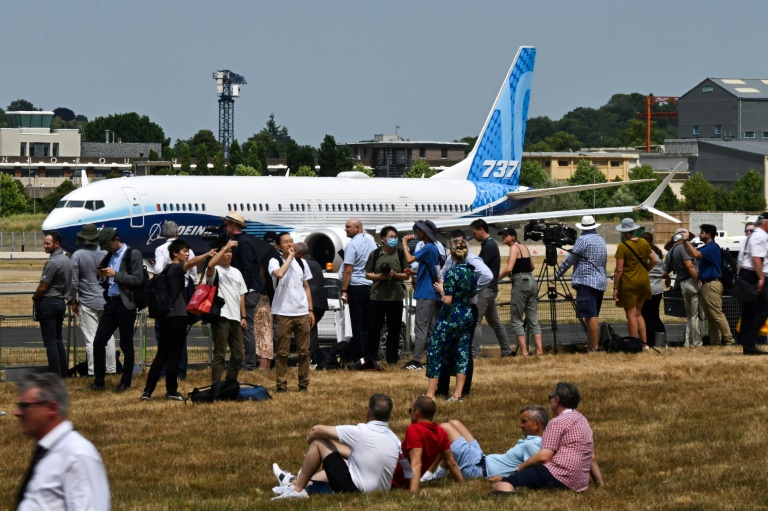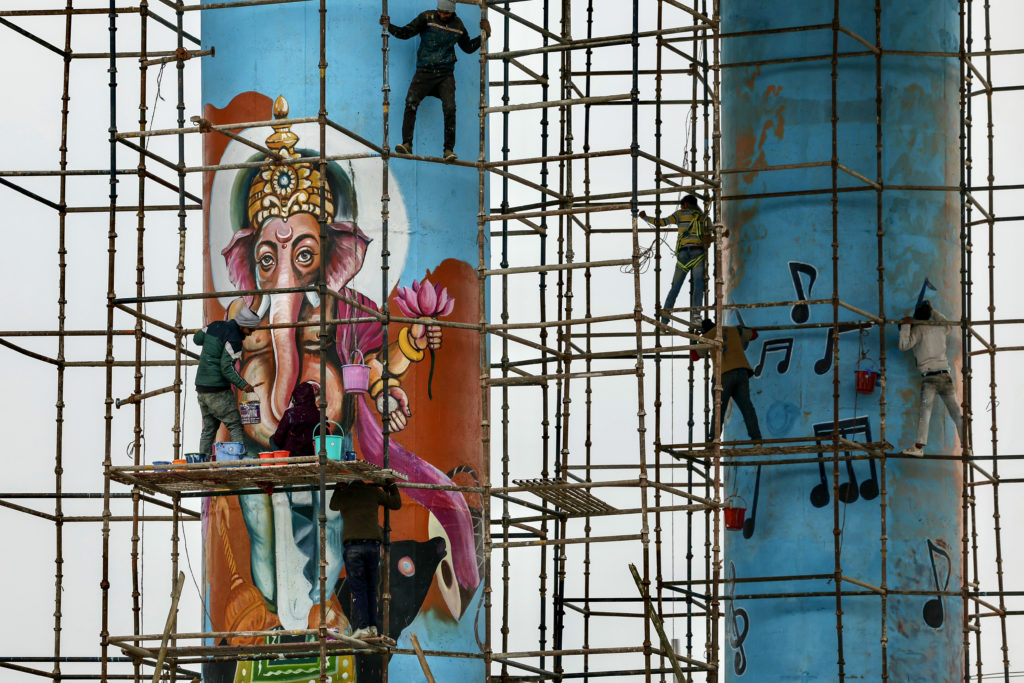Boeing reported a drop in second-quarter profits on Wednesday due to the continued travails of the 787, but the company said it was close to receiving regulatory approval to resume deliveries of the plane.
“We’re on the verge,” Chief Executive Dave Calhoun said on CNBC, although he declined to set a date when asked about when he expects Federal Aviation Administration approval to resume deliveries on the Dreamliner aircraft.
Deliveries on the top-selling widebody jet have been suspended for more than a year, a factor that again dragged down revenues.
The aviation giant reported a 67 percent plunge in quarterly profits to $193 million, as revenues declined 1.9 percent to $16.7 billion.
The company missed analyst estimates for revenues and earnings-per-share, but stock prices rose after the report, as Boeing confirmed it still expects to have positive cash flow in 2022.
Calhoun told CNBC the company was at a “bit of a turning point” in terms of getting past key obstacles.
On the 787, the company has been working with the Federal Aviation Administration to address a series of manufacturing issues uncovered in 2020 and since.
The company took a $3.5 billion charge for additional rework costs on the 787 in the fourth quarter of 2021. It said in April it expects another $2 billion in “abnormal costs” for the 787.
At the end of March, Boeing had 115 Dreamliner planes in inventory and was producing the jet “at very low rates.”
On Wednesday, the company said it was working with US air safety officials on “final actions” to resume 787 deliveries.
The enhanced regulatory scrutiny of the 787 and other Boeing planes comes on the heels of a pair of crashes in 2018 and 2019 on the 737 MAX, which led to a lengthy global grounding of the plane.
But the MAX has since returned to service, enabling Boeing to ramp up production of the planes, collect meaningful revenues and announce significant new orders at the Farnborough Airshow earlier this month.
Even so, Boeing’s backlog of orders in the pipeline lags that of archrival Airbus, but Calhoun told CNBC he is not worried about the difference.
“We don’t need to close that gap,” Calhoun said, adding that aviation industry is “supply constrained for as far as I can see.”
Boeing’s job is “to deliver against our backlog,” he said. “My job is to make sure I’ve got a big enough backlog to continue to increase my rate, stay stable in production and satisfy our customers every step of the way.”
Shares climbed 2.0 percent to $159.11 in morning trading.











